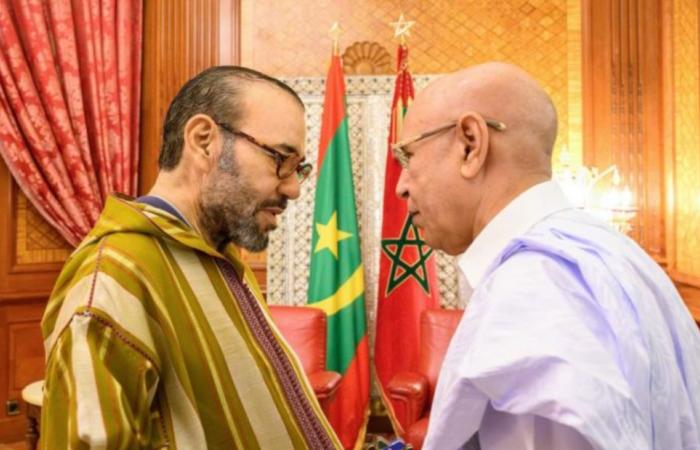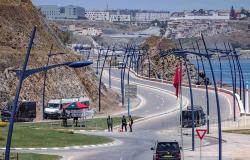The current position of Mauritania in the context of tension created by Algeria around the question of the Moroccan Sahara is marked by an officially proclaimed neutrality, but increasingly put to the test. This posture raises questions about its long-term sustainability.
Mauritanian neutrality is beginning to lose its reasons for existing in a context where regional geopolitics is changing, particularly under the effect of the Moroccan diplomatic and economic offensive. An offensive supported by strategic partners such as the United Arab Emirates.
Furthermore, and as recently as January 6, 2025, French President Emmanuel Macron maintained, during a speech to ambassadors, that “one of the important moments of recent months has been what we have managed to build with His Majesty King Mohammed VI during the state visit”, in particular, the role of Morocco as a key partner for a new approach to the African continent, a Morocco which is now “one of the relays for a reinvented African approach. »
Read also | Atlantic Initiative: How Morocco can avoid the trap of large groups
A fragile posture
Since the peace agreement signed in 1979 with the Polisario Front, Mauritania has strived to maintain neutrality in principle in the question of the Moroccan Sahara. However, this neutrality is facing growing pressures. Morocco, with its autonomy project for the Sahara and its alignment with international powers such as the United States and the European Union, is accentuating its geopolitical attractiveness. At the same time, Algeria remains faithful to its support for the Polisario, relying on financial and military means to influence its neighbors, although this strategy has become ineffective and is running out of steam.
For Mauritania, remaining neutral is becoming increasingly complex in the face of the economic opportunities offered by Morocco and its partners, such as the Atlantic project, partly financed by the Emirates, and the risks of destabilization that a change of alignment could cause.
Read also | New slap in the face for Algiers: Ghana suspends diplomatic relations with the SADR
The economic attractiveness of Morocco
Morocco is leading a diplomatic and economic offensive which is finding a favorable response among the Mauritanian intelligentsia and economic players. The regional integration proposed by Rabat is based on concrete projects which aim to strengthen infrastructure, trade and strategic partnerships. The recent tripartite meeting between His Majesty King Mohammed VI, the Emir of the United Arab Emirates, and Mauritanian President Mohamed Ould Ghazouani symbolizes a rapprochement and a desire to move forward. This dynamic, supported by Emirati investments, places Mauritania before a development opportunity carrying great promises of shared prosperity, which contrasts with the Algerian model focused on a policy of division and support for non-state entities.
In addition, the alignment of the great powers on the autonomy project for the Moroccan Sahara underlines a global movement in favor of stability and regional integration, thus strengthening Morocco’s credibility as a strategic partner.
Read also | Mauritania put to the test of a neutrality designed not to last
Mauritanian brakes: risks and calculations
Mauritania, despite the highly attractive nature of these economic opportunities, maintains a certain prudence which is diminishing, but a prudence all the same justified by the fear of Algerian reprisals with an Algeria confronted with internal challenges, which retains a capacity to nuisance in the region, in particular through economic pressures or destabilizing actions. We must not forget that Mauritania’s geographical proximity and historical dependence on Algeria in terms of security partly explain this caution.
This caution is also motivated by Nouakchott’s desire not to alienate the Polisario, whose presence in areas close to Mauritania creates a factor of tension. Therefore, too close a rapprochement with Morocco could encourage this entity to carry out maneuvers in border territories.
It could also be motivated by a Mauritanian desire to take advantage of the Moroccan-Algerian rivalry by negotiating advantages for both sides. However, this balancing strategy becomes difficult to maintain in the face of Morocco’s proactive dynamic. This is especially true since Algeria is proposing nothing other than a common project of withdrawal, while Morocco is proposing to associate Mauritania in a project for the future open to the entire region and the world.
Read also | His Majesty the King receives the Mauritanian President in Casablanca
An intelligentsia aware of Mauritanian interest
Beyond political calculations, the Mauritanian intelligentsia seems increasingly convinced that the future of the country is closely linked to that of Morocco. The Mauritanian press and media frequently highlight the economic and strategic opportunities offered by a strengthened alliance with Rabat, while criticizing Algeria’s ideological and archaic approach. This awareness reflects a desire for pragmatism in international relations, where cooperation and development take precedence over rivalries inherited from the past.
Towards a turning point in Mauritanian politics?
Mauritanian neutrality seems increasingly tested, and for good reason. Morocco has demonstrated the sustainability of its economic partnership model. It also demonstrated that the process of international alignment in favor of the autonomy project will continue. As for the management of tensions with Algeria, which so annoys the Mauritanians, Morocco is able to assume it.
Read also | Algiers facing diplomatic isolation: a failed anti-Moroccan strategy
As long as Mauritania manages to evaluate the concrete benefits of a rapprochement with Morocco, particularly in terms of infrastructure development, access to international markets and strengthening of regional stability, the first thing to suffer from this evaluation, it is neutrality.
In a context where the Maghreb is called upon to overcome divisions to build a complementary and united economic base, Mauritania could play a central role in promoting a dynamic of cooperation. For this, a strategic rapprochement with Morocco seems a promising path. However, this choice requires knowing how to place trust in a reliable and solid partner like Morocco, and political courage to overcome immediate pressures and challenges.






